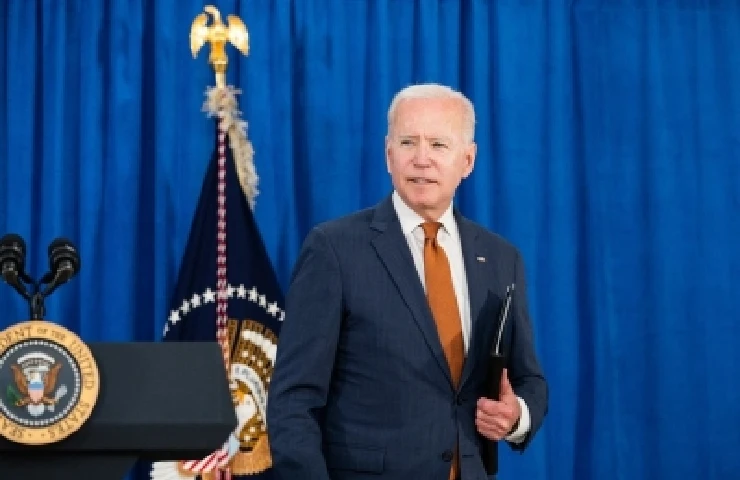

US President Joe Biden
<p>
The US, which has fully withdrawn from Afghanistan, is likely to increase its engagements in the Indo Pacific in the near future while further mobilising resources to contain China&rsquo;s dominance. Foreign policy watchers, India Narrative spoke to, said that the Joe Biden government, which is currently facing a huge backlash at home as well as globally, could now play a more assertive role in the Indo Pacific geopolitics.&nbsp;</p>
<p>
According to <a href="https://www.theatlantic.com/international/archive/2021/09/china-taiwan-afghanistan/619950/">the Atlantic</a> &ndash; an American magazine, the withdrawal could also finally free up the U.S. to pursue greater engagement and investment in Southeast Asia and the Indo-Pacific, setting up a larger challenge to Beijing.</p>
<p>
<strong>Also read: <a href="https://www.indianarrative.com/opinion-news/after-us-exit-from-afghanistan-india-china-and-south-asia-will-be-in-spotlight-nepal-scholar-112290.html">After US exit from Afghanistan, India, China and South Asia will be in spotlight–Nepal scholar</a></strong></p>
<p>
Yet, confidence in the US has shaken even in the region, as regional players are carefully watching the behind the scenes preparations of a meeting between Chinese President Xi Jining and his US counterpart, Joe Biden. Analysts say that US Deputy Secretary of State, Wendy Sherman is doing&nbsp; most of the diplomatic heavy lifting including travels to Beijing, in planning for a summit, which could lead to new chapter of engagement between the US and China.</p>
<p>
Even as several foreign policy watchers said that US cannot be a dependent partner, the Atlantic said that Afghanistan cannot be compared with other partners.</p>
<p>
While Beijing has left no stone unturned in portraying America as an undependable partner, drawing comparisons between Afghanistan and other US partners, including Taiwan.</p>
<p>
&ldquo;The comparison between Taiwan and Afghanistan is a monumental stretch, and Beijing&rsquo;s bluster may mask anxiety about what will come next in Afghanistan, and beyond,&rdquo; it said.</p>
<p>
<strong>Also read: <a href="https://www.indianarrative.com/world-news/us-no-longer-a-superpower-says-british-defence-secretary-after-the-afghan-pullout-112239.html">US no longer a superpower, says British Defence Secretary after the Afghan pullout</a></strong></p>
<p>
On August 29, Zhao Lijian, Chinese foreign ministry spokesperson retweeted an article published by Global Times with a tweet saying &ldquo;To defend Taiwan island or not, it is not a question only about Washington&rsquo;s ability. It&rsquo;s about both capability and willingness. And the US may not have any of the two.&rdquo;</p>
<p>
Meanwhile, US Vice President Kamala Harris, who recently visited Singapore, was marked by her conscious effort to uphold the image of America as a credible partner and a superpower.</p>
Leaders of the BRICS nations welcomed Indonesia as a member of the group, while 10…
External Affairs Minister S Jaishankar held a meeting with his Russian counterpart Sergey Lavrov on…
The Russian military has carried out a series of strikes on Ukrainian military-related targets in…
India's toy industry, once heavily dependent on imports, is now manufacturing domestically and exporting to…
Members of the Indian diaspora and several artists in Argentina welcomed Prime Minister Narendra Modi…
Sub Lieutenant Astha Poonia officially became the first woman to be streamed into the fighter…